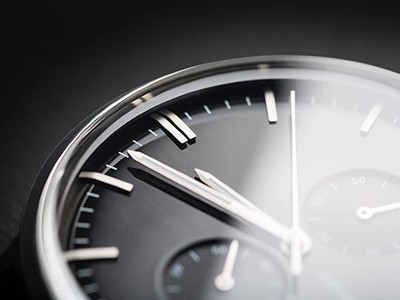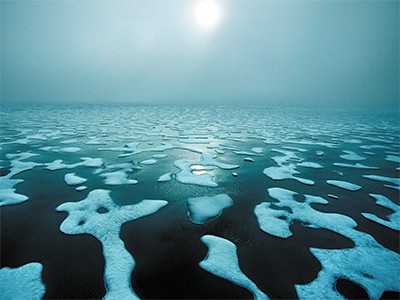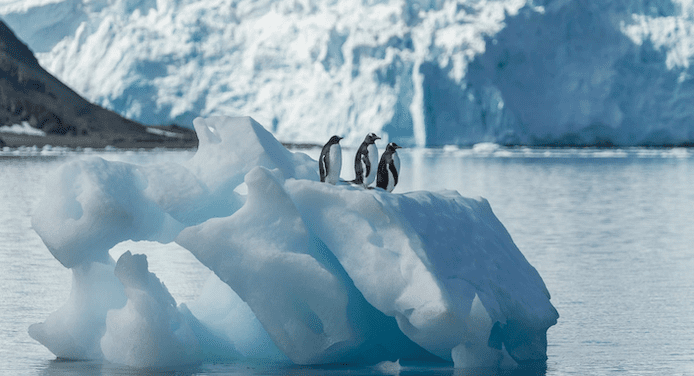|
إستماع
Getting your Trinity Audio player ready...
|
The effect of melting polar ice could delay the need for a ‘leap second’ by three years.
Climate change is starting to alter how humans keep time.
An analysis1 published in Nature on 27 March has predicted that melting ice caps are slowing Earth’s rotation to such an extent that the next leap second — the mechanism used since 1972 to reconcile official time from atomic clocks with that based on Earth’s unstable speed of rotation — will be delayed by three years.
“Enough ice has melted to move sea level enough that we can actually see the rate of the Earth’s rotation has been affected,” says Duncan Agnew, a geophysicist at the Scripps Institution of Oceanography in La Jolla, California, and author of the study.

The leap second’s time is up: world votes to stop pausing clocks
According to his analysis, global warming will push back the need for another leap second from 2026 to 2029. Leap seconds cause so much havoc for computing that scientists have voted to get rid of them, but not until 2035. Researchers are especially dreading the next leap second, because, for the first time, it is likely to be a negative, skipped second, rather than an extra one added in.
https://youtu.be/dIfEs9scnRg?t=29
“We do not know how to cope with one second missing. This is why time metrologists are worried,” says Felicitas Arias, former director of the Time Department at the International Bureau of Weights and Measures in Sèvres, France.
In metrology terms, the three-year delay “is good news”, she says, because even if a negative leap second is still needed, it will happen later, and the world might see fewer of them before 2035 than would otherwise have been anticipated.
But this should not be seen as a point in favour of global warming, Agnew says. “It’s completely outweighed by all the negative aspects.”
Synchronizing clocks
For millennia, people measured time using Earth’s rotation, and the second became defined as a fraction of the time it takes for the planet to turn once on its axis. But since 1967, atomic clocks — which tick using the frequency of light emitted by atoms — have served as more precise timekeepers. Today, a suite of around 450 atomic clocks defines official time on Earth, known as Coordinated Universal Time (UTC), and leap seconds are used every few years to keep UTC in line with the planet’s natural day.
Atomic clocks are better timekeepers than Earth, because they are stable over millions of years, whereas the planet’s rotation rate varies. In his analysis, Agnew used mathematical models to tease apart the contributions of known geophysical phenomena to Earth’s rotation and to predict their effects on future leap seconds.
Many metrologists anticipated that leap seconds would only ever be added, because on the scale of millions of years, Earth’s spin is slowing down, meaning that, occasionally, a minute in UTC needs to be 61 seconds long, to allow Earth to catch up. This reduction in the planet’s rotation rate is caused by the Moon’s pull on the oceans, which creates friction. It also explains, for example, why eclipses 2,000 years ago were recorded at different times in the day from what we would expect on the basis of today’s rotation rate, and why analyses of ancient sediments suggest that 1.4 billion years ago, a day was only around 19 hours long.

Arctic 2.0: What happens after all the ice goes?
But on shorter timescales, geophysical phenomena make the rotation rate fluctuate, says Agnew. Right now, the rate at which Earth spins is being affected by currents in the liquid core of the planet, which since the 1970s have caused the rotation speed of the outer crust to increase. This has meant that added leap seconds are needed less frequently, and if the trend continues, a leap second will need to be removed from UTC.
Agnew’s analysis finds that this could happen later than was previously thought, because of climate change. Data from satellites mapping Earth’s gravity show that since the early 1990s, the planet has become less spherical and more flattened, as ice from Greenland and Antarctica has melted and moved mass away from the poles towards the Equator. Just as a spinning ice skater slows down by extending their arms away from their body (and speeds up by pulling them in), this flow of water away from Earth’s axis of rotation slows the planet’s spin.
The net result of core currents and of climate change is still an accelerating Earth. But Agnew found that without the effect of melting ice, a negative leap second would be needed three years earlier than is now predicted. “Human activities have a profound impact on climate change. The postponing of a leap second is just one more example,” says Jianli Chen, a geophysicist at the Hong Kong Polytechnic University.
Precision problems
A delayed leap second would be welcomed by metrologists. Leap seconds are a “big problem” already, because in a society that is increasingly based on precise timing, they lead to major failures in computing systems, says Elizabeth Donley, who heads the time and frequency division at the US National Institute of Standards and Technology in Boulder, Colorado.
An unprecedented negative leap second could be even worse. “There’s no accounting for it in all the existing computer codes,” she says.
Agnew’s paper is useful in making predictions, but Donley says that there is still high uncertainty about when a negative leap second will be needed. The calculations rely on Earth’s acceleration continuing at its present rate, but activity in the inner core is almost impossible to predict, cautions Christian Bizouard, an astrogeophysicist at the International Earth Rotation and Reference Systems Service in Paris, which is responsible for deciding when to introduce a leap second. “We do not know when that means acceleration will stop and reverse itself,” he says.
Agnew hopes that seeing the influence of climate change on timekeeping will jolt some people into action. “I’ve been around climate change for a long time, and I can worry about it plenty well without this, but it’s yet another way of impressing upon people just how big a deal this is,” he says.
doi: https://doi.org/10.1038/d41586-024-00932-w
References
-
Agnew, D. C. Nature https://doi.org/10.1038/s41586-024-07170-0 (2024).

